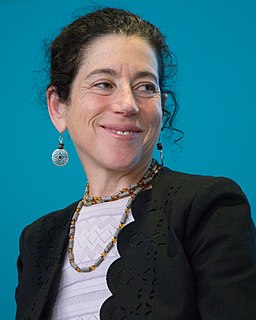A Quote by Jim Ryun
Guantanamo allows us to secure dangerous detainees without the risk of escape, while at the same time providing us with valuable intelligence information on how best to proceed in the war against terror and prevent future attacks.
Related Quotes
Unlike previous wars, our enemy now is a stateless network of religious extremists. They do not obey the laws of war, they hide among peaceful populations and launch surprise attacks on civilians. They have no armed forces per se, no territory or citizens to defend and no fear of dying during their attacks. Information is our primary weapon against this enemy, and intelligence gathered from captured operatives is perhaps the most effective means of preventing future attacks.
To have security against atomic bombs and against the other biological weapons, we have to prevent war, for if we cannot prevent war every nation will use every means that is at their disposal; and in spite of all promises they make, they will do it. At the same time, so long as war is not prevented, all the governments of the nations have to prepare for war, and if you have to prepare for war, then you are in a state where you cannot abolish war.
I think we need to understand what we mean when we talk about closure, we don't mean transfer or prosecute which is what many of the critics of Guantanamo would like to see happen. When the US government talks about closing Guantanamo, they talk about moving some set of detainees to some other place where they continue to be detained without charge.
I would ask, "How can one have a technological society without research? How can one have research without researching dangerous areas? How can one research dangerous areas without uncovering dangerous information? How can you uncover dangerous information without it falling into the hands of insane people who will sooner or later destroy the human race, if not the whole of life on earth?" Who knows? God only knows!
If we consider the actual basis of this information [i.e., intelligence], how unreliable and transient it is, we soon realize that war is a flimsy structure that can easily collapse and bury us in its ruins. ... Many intelligence reports in war are contradictory; even more are false, and most are uncertain. This is true of all intelligence but even more so in the heat of battle, where such reports tend to contradict and cancel each other out. In short, most intelligence is false, and the effect of fear is to multiply lies and inaccuracies.
The reality is if we sit back and allow a few officials behind closed doors to launch offensive attacks without any oversight against foreign nations, against people we don't like, against political groups, radicals, and extremists whose ideas we may not agree with, and could be repulsive or even violent - if we let that happen without public buy-in, we won't have any seat at the table of government to decide whether or not it's appropriate for these officials to drag us into some kind of war activity that we don't want, but we weren't aware of at the time.
We tend to have mixed feelings about the holy. There is a sense in which we are at the same time attracted to it and repulsed by it. Something draws us toward it, while at the same time we want to run away from it. We can’t seem to decide which way we want it. Part of us yearns for the holy, while part of us despises it. We can’t live with it, and we can’t live without it.
And yet many of us do it without families," Nynaeve said. "Without love, without passion beyond our own particular interests. So even while we try to guide the world, we separate ourselves from it.We risk arrogance, Egwene. We always assume we know best, but risk making ourselves unable to fathom the people we claim to serve.






































